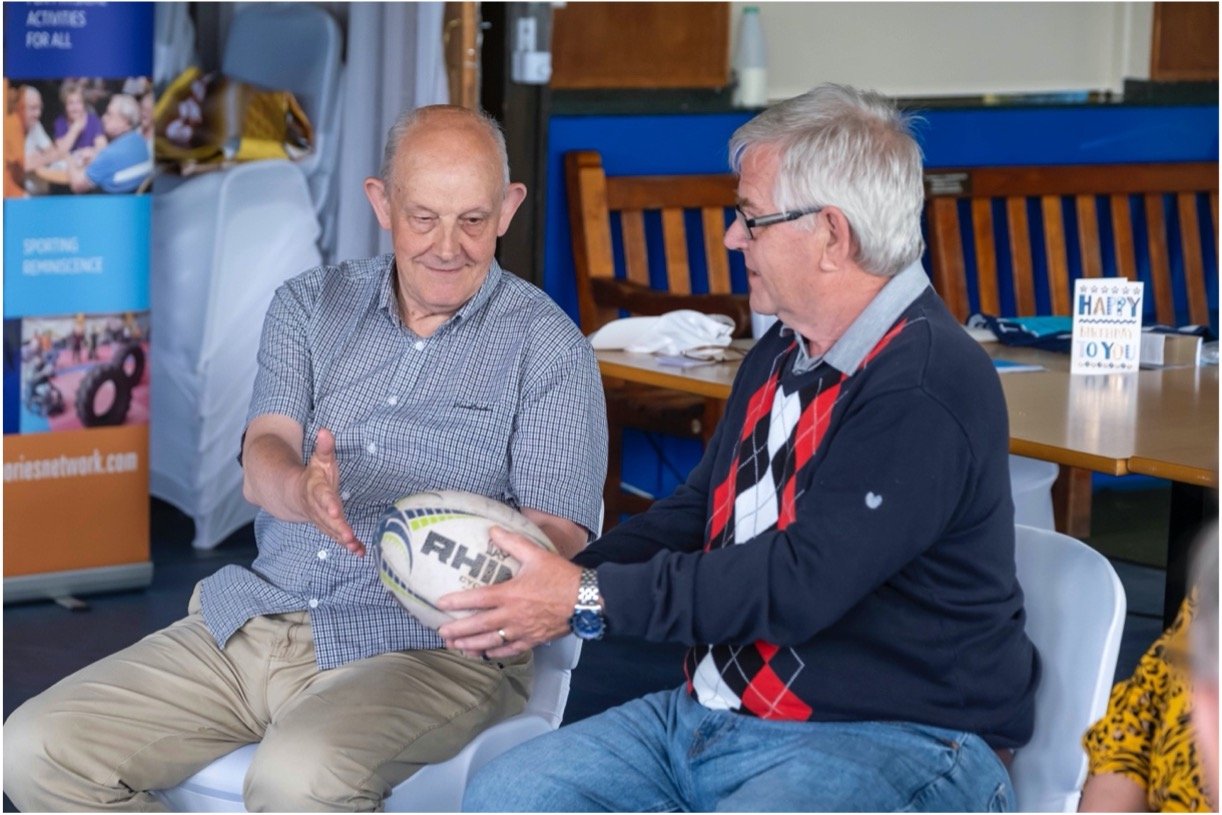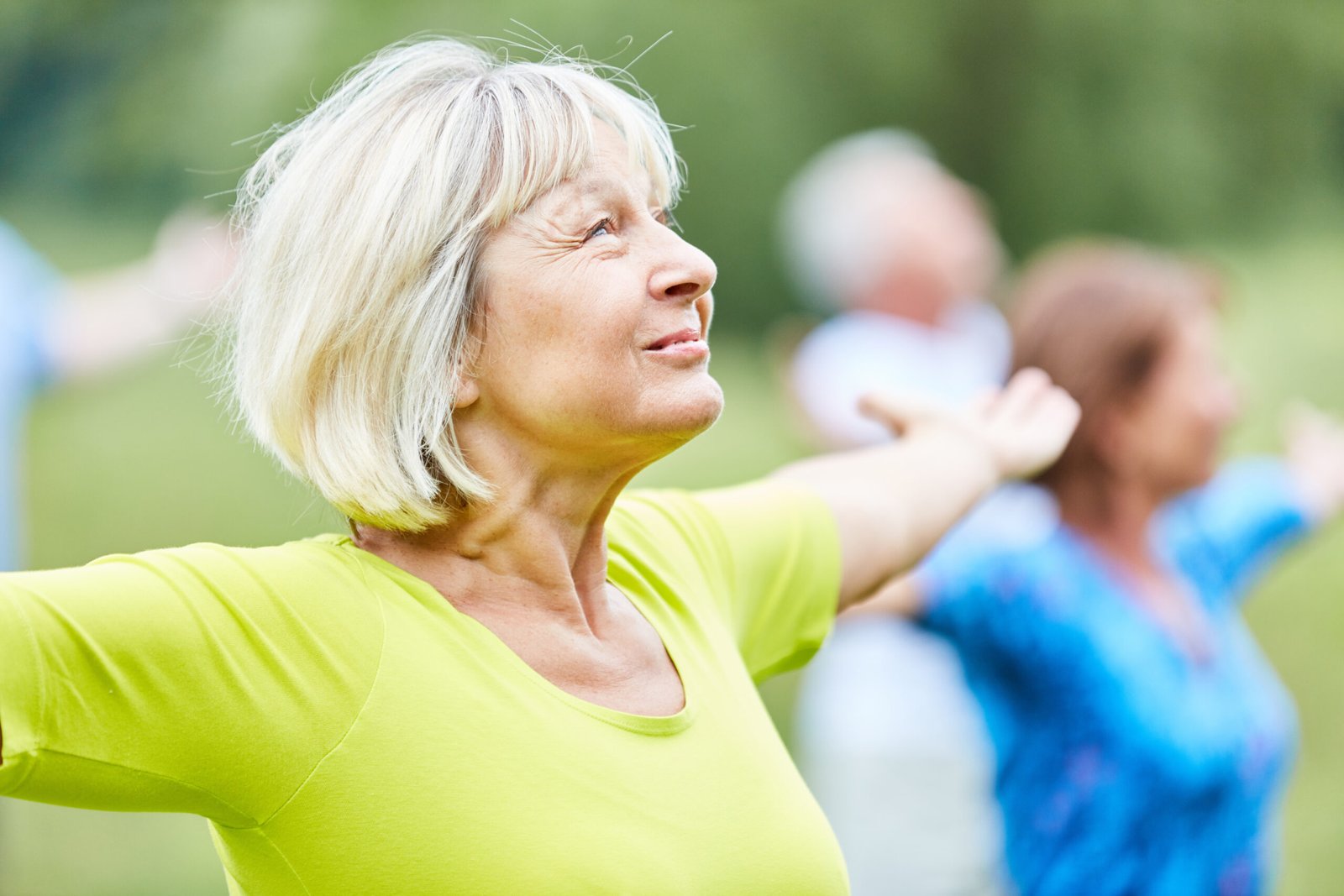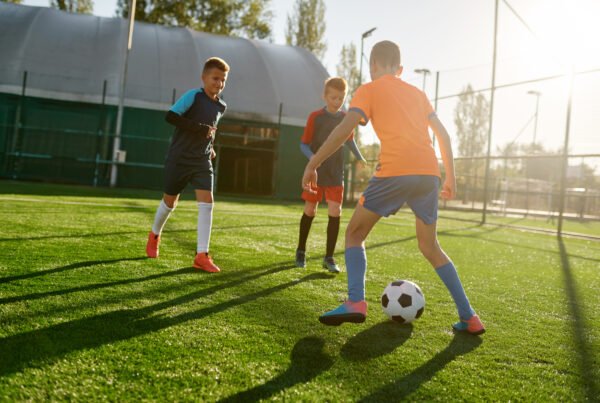OLDER people with a range of long-term health conditions need the motivation of a community club to take part in regular exercise, according to a new study.

The Observatory for Sport in Scotland (OSS) was commissioned by UK charity Sporting Memories to conduct research at one of their Scottish clubs into the impact of introducing a weekly sport and exercise programme. The study of 15 participants aged 70 to 90 years was conducted over six months and led by OSS research manager Ryan Brown and Dr Dawn Skelton, Professor of Ageing and Health at Glasgow Caledonian University, with support from research assistants Gregor Heath and Matthew Bedwell of University of the West of Scotland.
The aim of the research was to investigate whether adding regular sport-themed activities, alongside home exercise and links to other local sport, impacted on areas such as balance and fitness, physical activity and sedentary behaviour, loneliness, quality of life and wellbeing. With all improving their functional fitness and wellbeing through the club activity, an interesting finding to emerge was participants revealing that they struggled to exercise when at home, without the stimulation of the club.
Key findings
- The number of participants meeting the UK Chief Medical Officers’ weekly guidelines (150 mins per week of moderate intensity physical activity) increased by 44%.
- Average sedentary time decreased by 36%, from 6.3 hours to 4.6 hours per day – a fall of 1.7 hours across the participant cohort.
- After six months, 73% of participants rated themselves as having either good, very good or excellent aerobic fitness, compared to 53% at the start of the research.
- All participants showed improvements in fitness, health and wellbeing, with more than 80% improving in the chair rise and standing march tests.
- Quality of life scores improved in areas of mobility, anxiety and depression, and 53% felt their loneliness was either a lot or somewhat better.
Chris Wilkins, Sporting Memories CEO and Co-Founder, said:
“The fact that all our participants showed improvements in physical and mental health from the activities we introduced is a wonderful result – it has been a really interesting research project.
“While it was disappointing to note that few continued the exercises at home, using the packs we gave them, it is interesting to hear them explain why, which was that they felt they needed the motivation of being at the club where they could meet people, chat and all take part in the activities together, in a fun way.
“That is, essentially, the purpose of the clubs. We’ve introduced the ‘Replay Sports and Social Club’ concept to deepen the positive impact our members were already enjoying within our weekly Sporting Memories Clubs, and increase physical resilience, improve mental wellbeing and create more occasions for social contact.
“We knew that the club was an important meeting point, but, in commissioning independent research, we wanted to learn how these additional activities and focus on exercise and sports really impacted on our members, most of whom are living with a range of long-term conditions. We turned to OSS not just because of their thorough but flexible approach to identifying appropriate measures, but also because of their broad knowledge base around sport and physical activity, and the incredible array of sector experts that were able to input to the research programme.
“It was also really helpful to have the recommendations from the researchers, many of which were formed by the participants themselves, as these can help us to improve how we do things, as we grow the clubs across the UK.”
He added:
“It’s been great working with the OSS, and our members had a great time with their researchers. They were all delighted to have contributed to developing the science around how we help older people stay active and we hope to develop this research further.”






Thought Piece from Charlie Raeburn for Reform Scotland